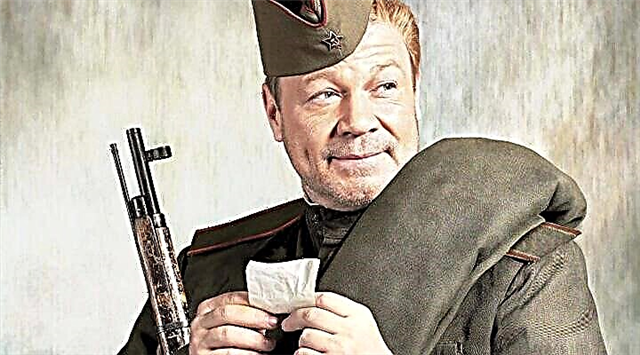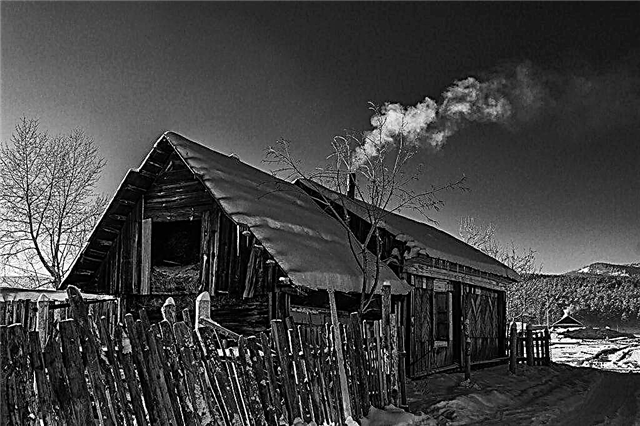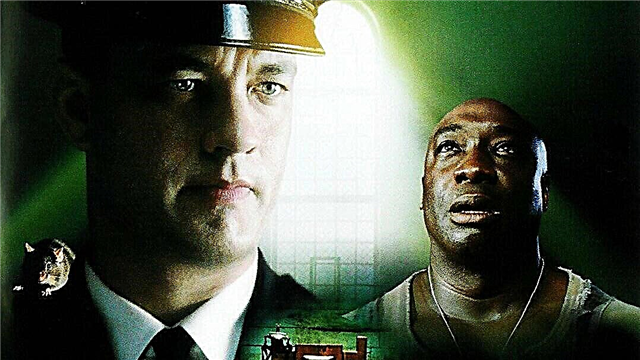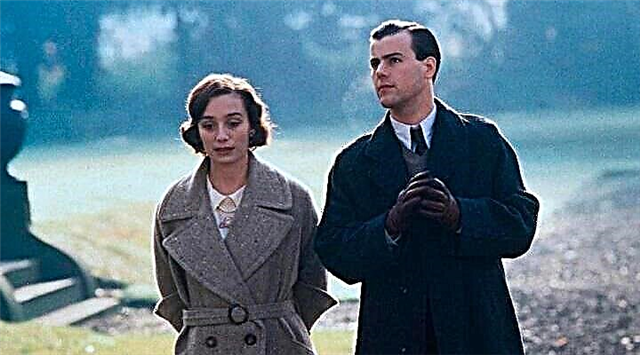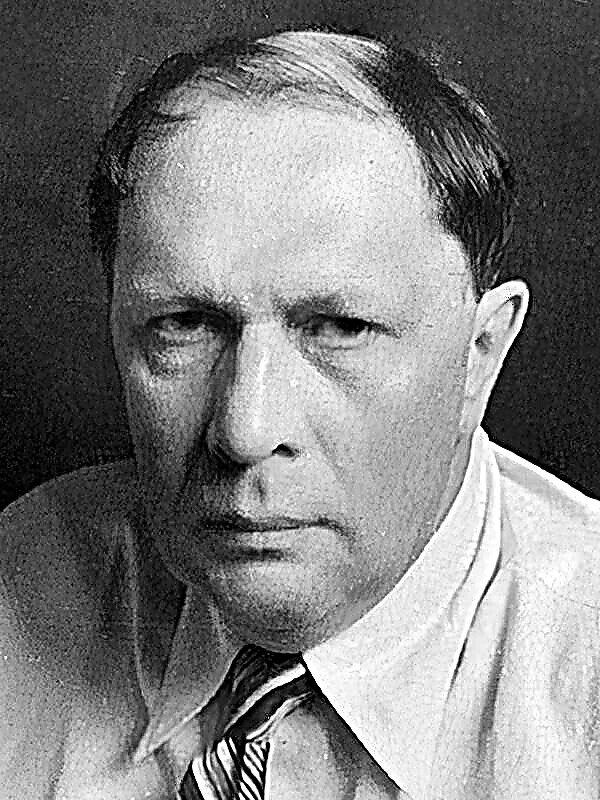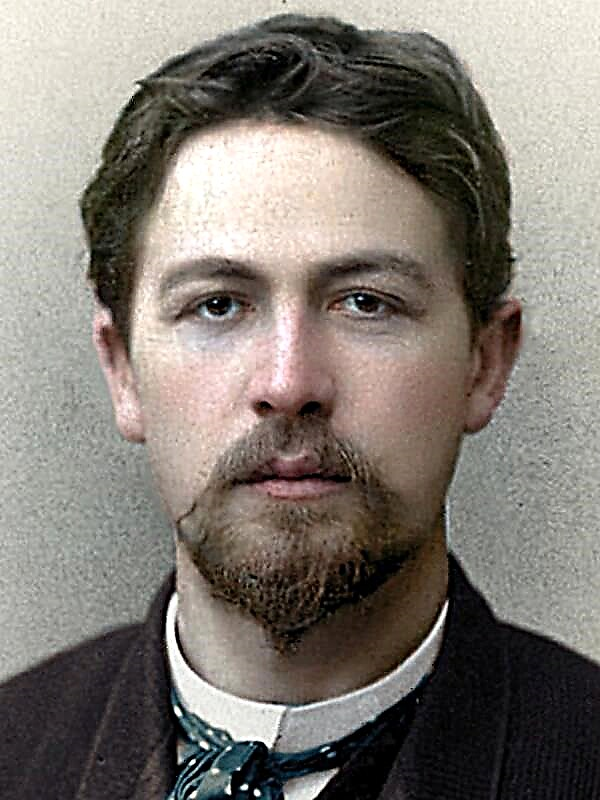The Danish king Christian II (or, according to the old-Danish form of this name, Kristiern II) is a rather vivid person in the history of Scandinavia. He ruled Denmark and Norway from 1513-1523. and Sweden in 1520–1523, struggled for power for another nine years, allowed in 1532 to deceive himself into Denmark allegedly for negotiation, was captured and then spent another twenty-seven years in prison at the Sönderborg and Kalundborg castles. The fall of King Kristiern is the failure of his attempt to restore the great northern power, which existed in the form of the so-called Kalmar Union (was concluded in 1397) as part of Denmark, Sweden and Norway. The fate of the king and his country is shown by the author in a special way - on the example of the fate of Mikkel (a collective name for the Dane, like Ivan for the Russian), the son of a village blacksmith, a learned studiosus and a soldier. There is no need to say that the life experience of Mikkel and the people associated with him was unsuccessful, as the attempt of the great Danish king to restore the former power turned out to be unsuccessful. But first things first.
A young, lanky schoolboy, Mikkel, nicknamed the Stork in Copenhagen, roams the city at night in search of food and impressions. He stumbles upon a merry company of German Landsknechts, and those, good-naturedly joking about the student’s appearance and hungry appearance, take him into their company. Soldiers mumble, moving from one tavern to another; among them, Mikkel recognizes the Danish fellow countryman Otto Iversen, a young baric from the estate closest to Mikkel’s native village. Having strayed from the company for a short while, Mikkel looks into one of the taverns and sees in him at that moment the divinely beautiful Prince Kristiern, who picks up the juicy berries from the vine, which seemed to him at that moment. The prince, like all other new acquaintances of Mikkel, appears the next morning on a military campaign and hurries to enjoy the delights of earthly life. Mikkel and Otto, who had caught up with him on the street, were talking about her possible transience, he had long recognized Mikkel, although he did not show it; in Copenhagen, Otto is sad, he does not know anyone here, but tomorrow, perhaps, death awaits him. Otto went to the soldiers in spite of his mother: she does not allow him to marry Anna-Mette, a simple peasant girl, and he and Anna-Metta love each other; probably Mikkel met Anna-Mettu?
Mikkel does not respond to the revealing master; he knows - sometimes it’s more tactful and profitable to keep silent. Therefore, he does not share with Otto his dreams of Susanna, a girl living in the house of a wealthy Jew, Mendel Speyer (is it possible that she is his daughter?). Sometimes Susanna goes into the garden adjacent to the house, and Mikkel from afar, because of the fence, adores her with adoration, not daring to approach. But on the same night a little later, having parted with Otto, Mikkel sees a hole in the fence of the garden and becomes an unwitting witness to Susanna's almost accidental seduction by a young baric. The next morning, Otto, along with the army, sets off on a journey, and Susanna, convicted of a night watchman in adultery, is expelled from Copenhagen with her old father (the townspeople are especially strict to the new people), after having subjected the guilty person to the humiliating punishment of “carrying stones outside the city walls”. Watching a girl from the crowd, Mikkel sees on her face not only suffering, but also an expression of satisfaction - she clearly enjoys the suffering: now he knows that he will certainly avenge the lord for the scolded love.
Mikkel's wanderings around Copenhagen continue for several more days. He turns to the local theologian and influential churchman Jens Andersen with a request to send him, Mikkel, to study at a foreign university, but does not pass the exam, which the theologian immediately instills in him. Mikkel also does not succeed in a deal with the devil, for the sake of which he visits the cemetery chapel at the dead of night. In the end, the schoolboy who has gone down and walked away is expelled from the university, and he has no choice but to return home to his native village, where his father and brothers cordially meet him. But in the village, Mikkel again meets with Anna-Metta, who has turned from a red-cheeked laughter, as he remembered her four years ago, into a written beauty. Mikkel falls in love with Anna Metta, but she has not forgotten and loves her Otto. Overwhelmed by conflicting feelings, Mikkel forcefully takes her to the other side of the fjord, and the dishonored girl does not dare to return home; she is hired as a servant in the house of a rich peasant, and Otto, returning from a campaign, upon learning of her misfortune, resignedly returns to his family estate, Mokholm. He believes that nothing can help her.
It takes about twenty years. Mikkel becomes a professional soldier. One day, Bishop Jene Andersen sends him to accompany the messenger to the king, who besieged Stockholm at that time. A messenger is a rosy-cheeked twenty-year-old handsome man of open and friendly disposition, without thinking twice, he confides to Mikkel his deepest secret (as he has probably done it a thousand times already): Axel (that’s the name of the young man) wears on his chest an incense donated to him at the age of eighteen by an old Jew, Mendel Speyer. In the amulet is a letter in Hebrew indicating the place where Axel can get wealth for himself. One day, Axel will show a letter to a knowledgeable priest, but only at the moment when he will leave for another world - so the secret will remain stronger.
Mikkel and Axel carry out the assignment given to them. In Stockholm, both soldiers participate in lush celebrations on the occasion of the Swedish coronation of King Kristiern and become eyewitnesses to the so-called Stockholm Bloody Bath - the mass execution of high Swedish nobility accused of heresy and wealthy citizens - in such a radical way the king intends to break their resistance and resolve the issue of the unity of the Nordic countries at his fingertips. Mikkel personally observed the execution, standing among the soldiers guarding the frontal place; Axel, on the other hand, saw the execution from the window of the house where, shortly before, he was amusing himself with Mikkel’s mistress, whom they brought to their shared apartment from the “merry ship” - a floating brothel from the glorious trading city of Lübeck.
The spectacle of execution makes the hero so grievous that he falls ill and turns to God for help. Axel nurses the patient: on Mikkel’s offer to read him the coveted letter (since Mikkel dies anyway), Axel refuses, he is sure that Mikkel will survive (and neither of them knows that their common mistress from the “merry ship” had long since stolen paper from "Lucia). Such a noble gesture from a successful rival and the son of his enemy inflames hatred in Mikkel ... and he recovers. Axel happily marries the daughter of a member of the city magistrate that attracted him. However, a serene family life is not for him, and soon he goes back to Denmark (just to look at his long-standing love and immediately return back to Stockholm to his wife), but he goes astray and almost dies in the winter "primeval" forest, where he is picked up by a forest man, Kesa, who lives with his daughter in a lonely hut. And in their house, too, the simple-hearted and friendly Axel was accepted as the best guest, and Kesa without hesitation gives him the most precious thing - her daughter. But spring comes, forest loneliness becomes a burden for Axel, and he sets off on.
Later that year, Mikkel, who turned up in his native places, heard a rumor about a rich wedding being held nearby. Inger, the illegitimate daughter of Anna-Metta and Mikkel, is married to the wealthy and handsome knight Axel. Axel finds and invites his older friend to the wedding, but Mikkel refuses, he is afraid of the past. Then Axel escorts him on the way to the other side of the fjord, and here, in a fit of inexplicable hatred of fate, Mikkel pounces on Axel and wounds him in the knee, he does not want Otto’s son and his rival to be happy. A few days later, everyone abandoned Axel dies from Antonov fire - gangrene.
In the meantime, King Kristiern’s affairs are not going well. He conquered Sweden twice, and twice she fell away from him. Moreover, in his rear, in Denmark, he grumbles to know. In the end, the king is forced to flee from Jutland (this is the largest Danish peninsula) to funen, where they promise to help him. Norway is also behind the king. Kristiern is ashamed of his flight and, having almost reached the island, orders to turn back, but when he is again off the coast of Jutland, he realizes that his return is unreasonable, and orders again to rule on funen. So, in the throwings around Small Belt, night passes back and forth. The king has lost his former confidence, which means that the king has fallen.
It takes many years. Mikkel, an experienced participant in almost all European wars of that time, makes a pilgrimage to the holy places in Jerusalem and Italy, after which he returns to his native village. He catches his older brother Niels and three adult nephews for military preparations: all over Jutland they burn and rob noble estates, the peasants collect a militia to help the captured nobility Kristiern. Mikkel already in years, he had seen enough of wars, and he does not want to go with the peasants: he will serve the king in a different way. On the ruins of the burned estate, Moholm Mikkel discovers the corpses of the aged Otto Iversen and the rich peasant Steffen, the ex-husband of Anna Metta, who died long ago. So all her men met, Mikkel sums up.
At first victorious, the peasants were defeated by the German Landsknechts Johann Rantzau (he used firearms against muzhiks - muskets). Mikkel, however, serves in service to the king imprisoned in Sönderborg Castle. In the last episode of the novel, he goes from the castle to the doctor and warlock Zachariah in Lubeck to solve the tormenting king's question: does the Earth revolve around the Sun, according to Mikkel, who has heard many new-fashioned theories in Italy, or does the Sun go around the Earth, as was believed from time immemorial? Having survived a series of comic adventures related to senile weakness, warlike habits and an addiction to drinking, Mikkel gets to the goal, but only in order to discredit Zakharia, who, as it turned out, set up cunning experiments on a living person. Struck by the cruelty of his experiments, Mikkel blabbed about them in a drunken stupor, and Zacharias, like his experimental creature - conceived in the Sønderborg castle by the king Kristiern himself! - publicly burned. Mikkel is brought to the castle half-paralyzed, and he indifferently hears the news he is told: they live in the castle waiting for Mikkel to arrive, his granddaughter is a young deaf-mute Ida, the illegitimate daughter of Inger and Axel, and the wandering musician Jacob, who once felt sorry for the abandoned child, is taking care of her . Without getting out of bed, Mikkel dies six months later with the firm conviction that he did not know happiness in life.
Equally unfavorable is the result of the life of the decrepit in prison, but not completely losing the spirit of King Kristiern. After his reign, the author concludes, Denmark as an independent state “fell out of history”. Time, as Jensen proclaims in the pages of the novel, is “all-devastating,” and it is not commensurate with the throwings, thoughts, or hopes of an individual or entire nations.


